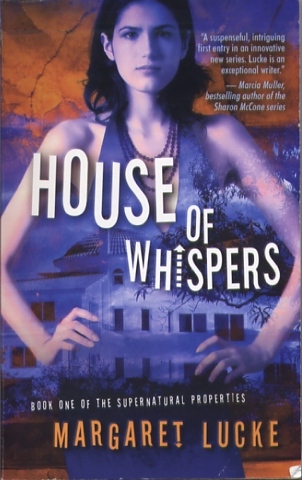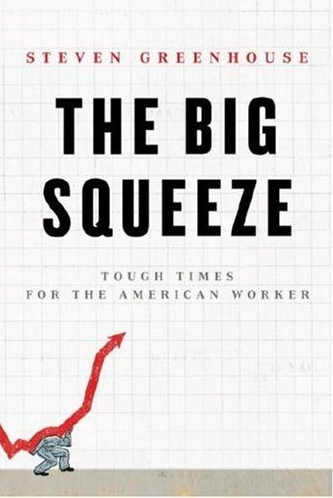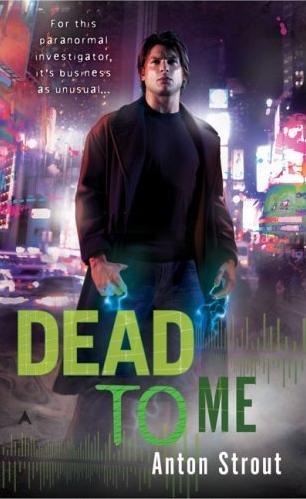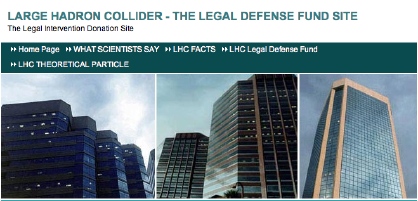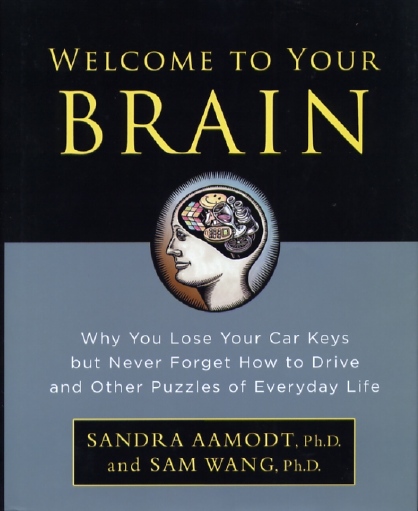|
|
|
|
This Just In...News
From The Agony Column
|
| |
|
04-11-08: Margaret Lucke Puts a 'House of Whispers' in Escrow ; Agony
Column Podcast News Report : NPR, Company Sued for Potentially Ending
the World
|
The Supernatural
Realtor
|
Trailer
for sale or rent. |
It's still freezing
cold – though sunny – and early spring here in Santa Cruz,
but the summer books are piling up fast. In case any of you are experiencing
some of the difficulties caused by the so-called "housing crisis,"
here's a book that's sure to lighten your load, or if not, at least erase
your brain's inclination to form rational thoughts – 'House of Whispers'
(Juno Books ; March 2008 ; $6.99) by Margaret Lucke.
It's a nicely turned, well-written entry into the burgeoning-beyond-belief
"paranormal mystery romance" genre that won't overwhelm you
with the romance, but will keep your toes tapping with a crisp plot and
some grisly murders that get the soft-focus treatment.
A brief mention about Juno Books is in line and quite overdue. Our friends
over at Prime Books, who publish some of the best cutting-edge weird fiction
out there, created the Juno Books imprint in 2006. Juno Books tend to
be trade paperbacks or mass-market paperbacks; there are some reprints
and some originals. Here's their website; if this book sounds like your
cuppa, then head on over and gaze at the large and delightful list of
other selections.
As for 'House of Whispers', I'll not whisper. Claire Scanlon is starting
a new life as a realtor; sure maybe not the best time to do so, but sometimes
our careers take on a life of their own. Alas, the best shot she's got
is selling the LeGrande house; big, yes, big commission, yes, big problem,
yes – it was the scene of a grisly murder. When she makes a visit
with the of-course handsome brother of one of the victims, her long-suppressed
psychic power kicks in, and she's drafted by the dead to help solve their
murder.
Sure, it's a simple setup, but handled with enough class and cleverness
to keep you reading and just as importantly, prevent you from thinking.
You'll live in this tightly plotted supernatural mystery right up till
the last page; not surprisingly, Margaret Lucke was nominated for a Best
First Mystery Anthony for 'Relative Stranger.' I don't know that I could
bring this to our beach as yet, but if you and your beach are ready, here's
a fine book to fill your life with other lives, to whisper in your ears
like the ghosts of the dead – and it wont command you to
solve any murders.
|
Agony Column Podcast
News Report : NPR, Company Sued for Potentially Ending the World : Wagner,
Rucker, Dimopoulos and CERN
As my final podcast
for this week, I've
made a high-quality MP3 copy of the report I did last week for NPR's
Day to Day. You cannot imagine a fire drill more enjoyable than this
report was to put together; luckily I had great support from the participants
– Walter Wagner, Savas Dimopoulos and Rudy Rucker – as well
as the folks at NPR. This time, I'm even going to upload the file under
the right name and everything. Please
note that if you ever do experience a problem uploading a file to let
me know via email. I try to keep up with myself, but that's
getting more difficult every day.As ever, you can help; go to the NPR
Website and tell them to have me do more work for them; which will
come back to you in unedited and full-length interviews. I'm here to provide
you with the best guide to literature you can find. Well, unusual
literature.
|
| |
|
04-10-08: Steven Greenhouse Puts You in 'The Big Squeeze' ; Agony Column
Podcast News Report : Rudy Rucker and the LHC
|
Tough Times (and
Luck) for the American Worker
You probably dont need me – or Steven Greenhouse
– to tell you that the world in general and the American economy
in particular are headed straight for the Big Swirly. Pop in your ear
buds, turn up the loudest and most obnoxious music you can find and still
the chorus of voices around you will penetrate the veil:
RECESSION.
THE GREATER DEPRESSION.
It's not good out there now and it's going to get worse before it gets
better. Everyone's trying to Photoshop reality, to soften the hard edges
as lower wages butt up against higher prices. As more bad news arrives
each and every day, the message is clear: This is as bad as it gets.
Until tomorrow.
Which is why it's a good idea to take a close look at 'The Big Squeeze'
(Alfred A. Knopf / Random House ; March 2008 ; $25.95). There's a graph
on the front cover of the book that illustrates the problem rather eloquently;
corporate America's rising profits are being made on the breaking backs
of the American workers. Greenhouse knows that workers dont have
a lot of spare time, so he doesn't waste time getting straight to the
heart of matters. He starts with how incredibly overworked we are and
then goes on to talk about the history behind the horror; the rise and
fall of the social contract. You remember that, don't you? You go school,
go to work, change jobs maybe once in your life and walk away with a decent
pension. You dont kill yourself working 60-70-80-hour weeks; it's
a straight 40 and some restful vacations. Not anymore, and let me tell
you that this has hit this home. I've watched two companies rise on the
entrepreneurship of those who created them, seen those companies sold
to globalized gobblers and seen decent corporate cultures turned into
workplace hells in say, about five friggin' years. From low-key innovation
to hustle-till-you-drop; from a family business to a family-hating vampiric
overlord, designed to get rid of experienced workers and replace them
with underpaid newbies so grateful for the merest crumbs they'll
work till they drop – or are replaced "at will" by somebody
cheaper.
Greenhouse writes the sort of compelling economic non-fiction that I love;
he effortlessly weaves in stories of real so-called "little"
people with tales of corporate greed and scarifying statistics; and not
so heavy on the stats, thankyouverymuch. What sells fiction? Characters;
the same is true for non-fiction. If you thought you were alone, you aren't;
if Greenhouse hasn't talked to you, he's talked to somebody like you.
I particularly liked that he got to the heart of an industry that I think
has been understudied in labor circles; that is the software industry,
which in my time went from being a recession-proof prestige occupation
to an outsourced sweatshop where grizzled veterans are forced to compete
for jobs with desperate kids just out of college. That's a lot of fun.
Greenhouse isn't all doom and gloom. He does have suggestions for how
we can break out of the Big Swirly death trap. But you've got to look
at the numbers; and here's a book where the bulk of the text explores
how terrible things have become. That doesn't bode well; not much does.
'The Big Squeeze' has arrived; wouldnt you prefer to experience
it as a book as well as a reality?
|
Agony Column Podcast
News Report : Rudy Rucker and the LHC Lawsuit : Science Fiction Tips
the Universe on Its Side
When I was staring
down a hard deadline for a story I'd backed myself into a corner to cover,
I knew there was one man I could count on to provide the breath of fresh
air that any science-based reporting requires; Rudy Rucker.
And he came through big-time, as you'll hear in this all-too-brief interview.
Rucker's got a new novel out, 'Postsingular', the first in a new trilogy
about life after the Singularity. Few writers are so well-equipped to
write about the unknowable, which is precisely why I asked him about the
unknowable. Hey, when nobody knows "boo" about whats
really going to happen, find someone smart and entertaining to speculate.
Rucker's your man, here's
your MP3 interview. You'll see why I managed to come away with an
embarrassment of riches with which to round out my report.
|
| |
|
04-09-08: Mario Guslandi Reviews 'Other Voices' by Andrew Humphrey ;
Agony Column Podcast News Report : A 2008 Interview With Savas Dimopoulos
|
Reasons to Be
Cheerful (or Torrentially Depressed)
|
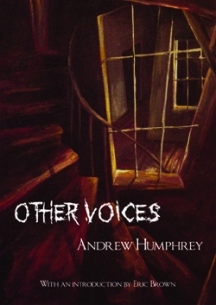
|
Other publishers - like Elastic Press. |
If, like me, you're
a reader, reviews like the one that Mario Guslandi gives 'Other Voices'
(Elastic Press ; January 28, 2008 ; £5.99) by Andrew Humphrey
are indeed reasons to be cheerful. (Quoting of course the great Ian Dury.)
On my own, I might never have encountered Humphrey's latest collection,
but thanks to Mario, it's now on my must-buy list. These small-press trade
paperback-only releases by authors who clearly could and probably someday
will command a much larger audience take me back to the earliest days
of my book-collecting mania. The small presses are still strong, still
robust, and collections like these featuring stories in a variety of genres
by a single author are the best reason to keep supporting the publishers
– buy this directly
from the website if you can, or at one of your local independents,
or an Internet independent.
Of course, once you start reading the book, chances are you'll need reasons
to be cheerful, as Humphrey doesn't stint on the darkness. He writes in
SF, horror, crime fiction and psychological surrealism. Let
Mario tell you all about it. Then be cheerful!
|
Agony Column Podcast
News Report : A 2008 Interview With Savas Dimopoulos : Other Universes
|
Ths
universe includes atoms. |
One of the best parts
of putting together the
report on the CERN LHC was getting to talk to some fantastically interesting
and intelligent people. It doesn't get much better than Savas
Dimopoulos – he's a Stanford physicist who is working
on a theory of many universes. So once I got the CERN audio for the piece,
I had to ask him about his latest theories, as some of the listeners to
this podcast have commented that they enjoy the interviews with scientists.
You can hear our conversation about universes
without atoms from this MP3 link. One wonders about the state of consciousness
in such a universe, what it might be and what it might perceive –
and thus are born science fiction stories. I trust that out there somewhere
is a listener who hears this interview and writes a story in response.
Or a scientist, who reads a review of a science fiction novel here and
then turns around and rolls that up into some serious science. Science
and science fiction – not so different these days. Thought experiment
– the phrase is so evocative. Open your eyes – and if you
thought they were open, then you've just performed an experiment, or written
a bit of first-person science fiction.
|
| |
|
04-08-08 : Anton Strout 'Dead to Me' ; Agony Column Podcast News Report:
Walter Wagner of LHCDefense.org
|
Americana Paranormal
It has been far too
long. But 'Dead to Me' (Ace / Berkeley /Penguin Putnam ; February 26,
2008 ; $7.99) by Anton Strout is just the sort of Americana
Paranormal that I like. The book is cheap, the story is funny, and it's
told with enough skill that rational thoughts shy away from the shattered
remains of your tiny brain like congressmen from ethics seminars. In other
words, this is a fine ol' slice of American Cheese, cooked up right and
ready to serve with a warm spring afternoon, a comfy chaise lounge and
three pint bottles of Spaten Premium. Pull up a chair, hoist up a beer
and let me give you a brief précis.
You got your psychic investigator, Simon Canderous. He's got the classic
psychic power, psychometry; that is he can touch an object and divine
useful information about others who have touched it and where it has been.
Thus far, he's used his power for low-life crime, but he gets a gig with
New York City's Department of Extraordinary Affairs, and no, not those
type of affairs. There's the beautiful woman (a ghost) and the case; solving
her murder.
I didn't say "Stop me if you've heard this before," because
chances are you've heard this setup before. What's important here is that
Strout writes well and delivers scenes that are smart enough to be really
fun. And for all you rampant bibliophiles, there's a great payoff scene
that involves a bookcase. 'Dead to Me' has a combination of good monsters,
great writing, good characters and an ineffable energy, an elusive ability
to skate past our senses and send readers into that pleasurable "Duh
State". During which you'll wish for the sequel to arrive sooner
rather than later.
|
Agony Column Podcast
News Report: Walter Wagner of LHCDefense.org : "Almost a religious
zeal on the part of physicists"
|
Will
the buildings be around after they start it? |
In researching for
my story on the CERN lawsuit, I first spoke with Walter Wagner,
who created the website LHCDefense.org
to help fund his lawsuit to at least slow down the process of firing up
the Large Hadron Collider (no
NYT typo for me!).
Here's the full-length, unedited MP3 interview with Wagner. The problem
you face as a reader and inhabitant of the earth is quite simple: assuming
that we're living in a science fiction novel, is it utopian or dystopian?
|
| |
|
04-07-08: A 2008 Interview with Sandra Aamodt, Ph.D. and Sam Wang, Ph.D.
: 'Welcome to Your Brain'
|
'Why You Lose Your
Car Keys but Never Forget How to Drive'
Get ready to have
your favorite brain myths debunked – and yet rejoice that they'll
be replaced by the delightful facts you'll find in 'Welcome to Your Brain'
: Why You Lose Your Car Keys but Never Forget How to Drive and Other Puzzles
of Everyday Life' (Bloomsbury / Macmillan ; March 4, 2008 ; $24.95) by
Sandra Aamodt, Ph.D. and Sam Wang, Ph.D.
Aamodt and Wang take you on a richly illustrated, beautifully laid out
and perfectly balanced journey through your own brain. It's everything
you need to know about how you manage to know anything, written and presented
in a lively, engaging manner that lets you pick and choose how you approach,
well – your very self.
Aamodt and Wang take a very precise approach to a huge and complicated
subject. They divvy their book up into six major sections; "Your
Brain and the World," "Coming to Your Senses," "How
Your Brain Changes Throughout Life," "Your Emotional Brain,"
"Your Rational Brain" (perhaps a bit presumptuous in these irrational
times, but hope for the best, right?), and "Your Brain in Altered
States." Each of these is divided up into read-'em-in-fifteen-minutes
chapters. Design and layout play a big part in this book, and as you'll
hear in the interview, the writers spent time not just getting a unified
voice, but also making sure that the reading experience would provide
the maximum everything. They actually succeed; the prose is lively and
informative without being formal. The illustrations offer, again as they
mention in the interview, well, about a thousand words a pop, let's say,
that you don't need to read because all the information's there at a glance.
Yes, both in this interview and in the book they debunk a number of myths,
but they replace them with facts that are a) factual and b) entertaining.
Aamodt and Wang are dedicated storytellers, smart writers who keep you
engaged in each subject long enough to make sure you take something interesting
and useful away. They cover a lot of ground, from jet lag to spirituality,
from decision-making to pair-bonding.
Now for some, the cure for jet lag will earn this book its keep, but it's
really the fun reading experience that makes this book more than worth
the cover price. Be advised that this is not a book that you need to read
from in order; it's pretty modular, so you can for the most part pick
and choose when you read what you read. That said, it's also cunningly
organized to take you from the inner mind to the outer limits; no control
voice is required. You
can hear my conversation with Aamodt and Wang here. You know where
to buy the book; and when you decide to do so, be advised that the book
itself will have some pretty damn useful information about how you came
to make that decision.
|
| |
|
|
